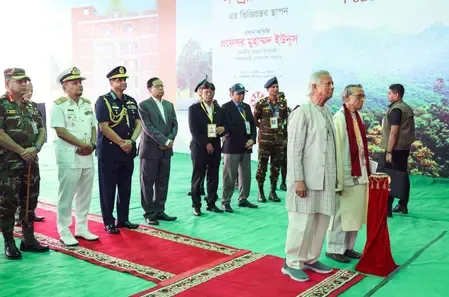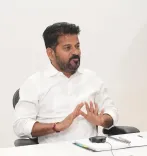Is the Bangladesh Army Facing a Push Towards Radicalisation?

Synopsis
Key Takeaways
- The Bangladesh army is facing significant pressure from radical elements.
- Jamaat-e-Islami has considerable influence over the interim government.
- The emergence of the Islamic Revolutionary Army poses a new threat.
- India is concerned about the implications for regional security.
- Internal factions within the army are resisting radicalisation.
New Delhi, Oct 1 (NationPress) The rise of violence in Bangladesh has escalated to alarming levels, with numerous institutions teetering on the brink of radicalisation. The Bangladesh army, however, has managed to remain largely detached from this turmoil.
Recent intelligence reports from Indian agencies indicate a significant effort to transform the Bangladesh army into an Islamist military force, akin to Iran's Islamic Revolutionary Guard Corps.
Following the removal of Sheikh Hasina, the Bangladesh army asserted its commitment to restoring law and order. Today, it finds itself a passive observer as radical elements within the ruling regime gain power.
A primary catalyst for this shift is Jamaat-e-Islami, which holds considerable sway over Muhammad Yunus, the caretaker of the interim government. It is widely acknowledged that Jamaat plays a pivotal role, adhering closely to directives from the Pakistan spy agency.
In recent weeks, there have been notable activities, including visits from ISI officials to Bangladesh and a covert trip by the DGFI to Pakistan, where discussions around the restructuring of the Bangladesh army took place.
Sources indicate that many within the Bangladesh army are opposed to radicalisation. Army Chief General Waker-uz-Zaman initially distanced himself from extremist factions, advocating for the restoration of stability. His supporters echoed this sentiment, distancing themselves from radical influences with the hope of reinstating a democratically elected government.
However, as Jamaat's influence grows and ISI's interference becomes more pronounced, some factions within the Bangladesh army are beginning to lean towards radical ideologies. Historically, the DGFI and ISI have collaborated closely since the Liberation War, orchestrating various operations against minorities and facilitating large-scale illegal crossings into India.
A new faction, the Islamic Revolutionary Army, is emerging, spearheaded by the Yunus-backed Anti-Discrimination Student Movement (ADSM). This students’ movement is openly aspiring to evolve into an armed group.
The ADSM has made its objectives clear, announcing a comprehensive martial arts training program in its initial phase, with plans to involve army officers for further training.
Examining the traits of this group suggests it aims to develop into a militia. The ultimate goal is to integrate into the Bangladesh army. To facilitate this, both DGFI and ISI have conducted numerous meetings.
These agencies have not only convened in Pakistan but have also met in Spain. Recent months have seen enhanced relations between Turkey and Bangladesh, indicating a concerning trajectory.
Initially, ISI and other radical factions faced resistance within the army and DGFI. However, Pakistan has successfully infiltrated various elements within these agencies, triggering a plan to undermine and ultimately dismantle the Bangladesh army.
The potential establishment of an Islamic Revolutionary Army replacing the Bangladesh army could destabilize the region significantly. India is increasingly alarmed by the emergence of terrorist groups in Bangladesh that threaten the northeastern states and West Bengal. The formation of such an army would exacerbate security concerns along the Indian borders, leading to the institutionalisation of terrorism.









